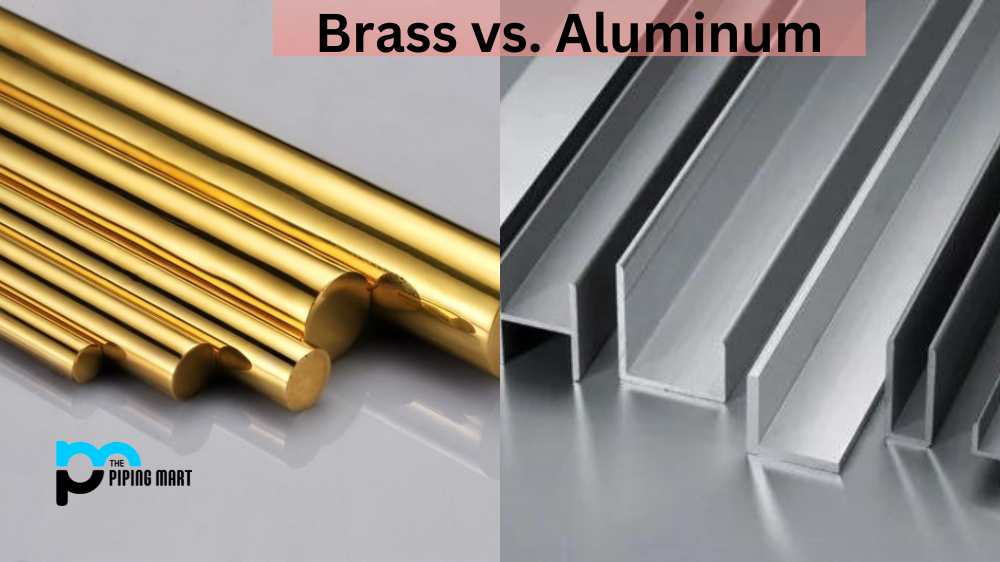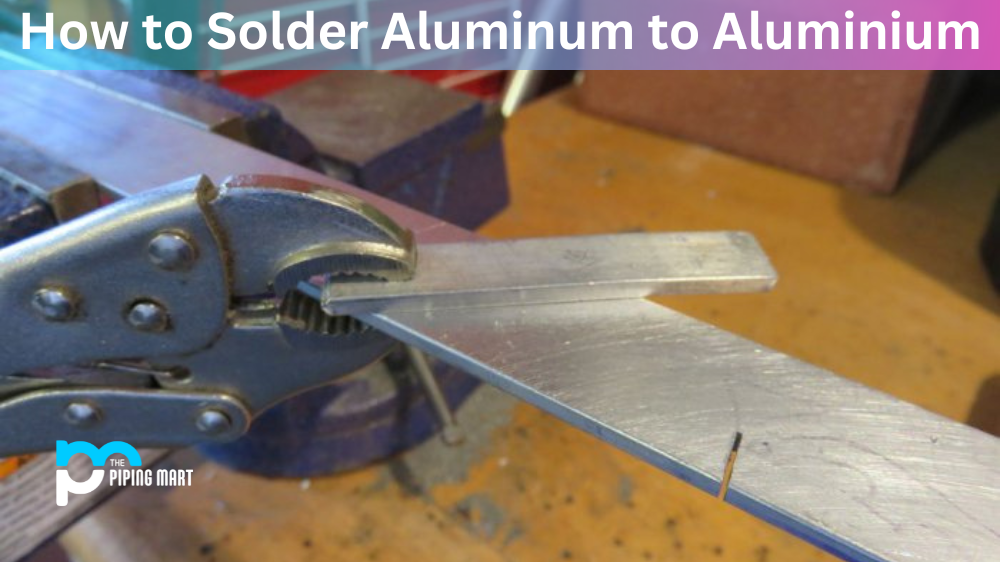When it comes to metal materials, brass and aluminum are two of the most commonly used. But what are the differences between the two? Brass is a metal alloy made up mostly of copper, while aluminum is a lightweight metal with a variety of uses. Let’s take a look at how these two metals compare in terms of their properties and applications.
Brass vs. Aluminum Strength and Durability
Brass is known for its strength and durability compared to other metals, making it ideal for use in items that require high levels of strength, like plumbing fixtures. The copper content in brass makes it resistant to corrosion and rusting—it can even stand up to saltwater environments better than other metals. Aluminum, on the other hand, has lower strength than brass but is much lighter in weight, making it ideal for items that need to be lightweight but still have some strength. It is also highly resistant to corrosion but not as resistant as brass.
Brass vs Aluminum Density
Brass is around 8.5 g/cm3 in density while aluminum has a density of 2.7 g/cm3, making brass nearly three times denser than aluminum.
Brass vs. Aluminum Cost
The cost of both brass and aluminum depends on factors such as purity level or alloy composition. Generally speaking, however, brass tends to be more expensive than aluminum due to its higher production costs. Since aluminum has a lower density than other metals, it usually costs less per pound than brass. That being said, aluminum also has many uses where higher-priced metals may not be necessary—making it an attractive choice for those looking for an affordable option.
Brass vs Aluminum Thermal Conductivity
Brass has a higher thermal conductivity than aluminum, with values ranging from 114 to 117 W/(m-K) versus only 205 W/(m-K). This means that brass is better at conducting heat energy away through its structure, making it an ideal choice for components which require efficient cooling.
Brass vs. Aluminum Applications
Brass is often used for items that need strength and corrosion resistance, such as electrical components or plumbing fixtures because it does not corrode easily, even when exposed to water or moisture. It can also be used in decorative pieces such as lamps or furniture because of its attractive yellow colour. Aluminum is lighter weight than brass, so it is often used in construction projects where weight needs to be kept down without sacrificing too much strength—such as window frames or roofing materials—or items that need excellent conductivity, such as wiring or cookware since aluminum conducts heat better than other metals do.
Other Differences
- Brass is an alloy of copper and zinc, while aluminum is a metal.
- Brass is harder and stronger than aluminum.
- Brass has a higher melting point than aluminum.
- Brass is more conductive than aluminum.
- Aluminum is lighter than brass.
Conclusion:
Both brass and aluminum have unique properties that make them ideal for different applications depending on your needs and budget. Brass offers greater strength at a higher cost, while aluminum provides lightweight along with good corrosion resistance at a lower cost—but may not offer quite the same degree of strength as brass does. Ultimately which one you choose will depend on your specific needs and what factors are most important for your project or product. No matter which one you select, though, you can rest assured knowing you are getting quality material with either option!

Pipingmart is a B2B portal that specializes in metal, industrial and piping items. Additionally, we share the latest information and information about materials, products and various types of grades to assist businesses that are involved in this business.




